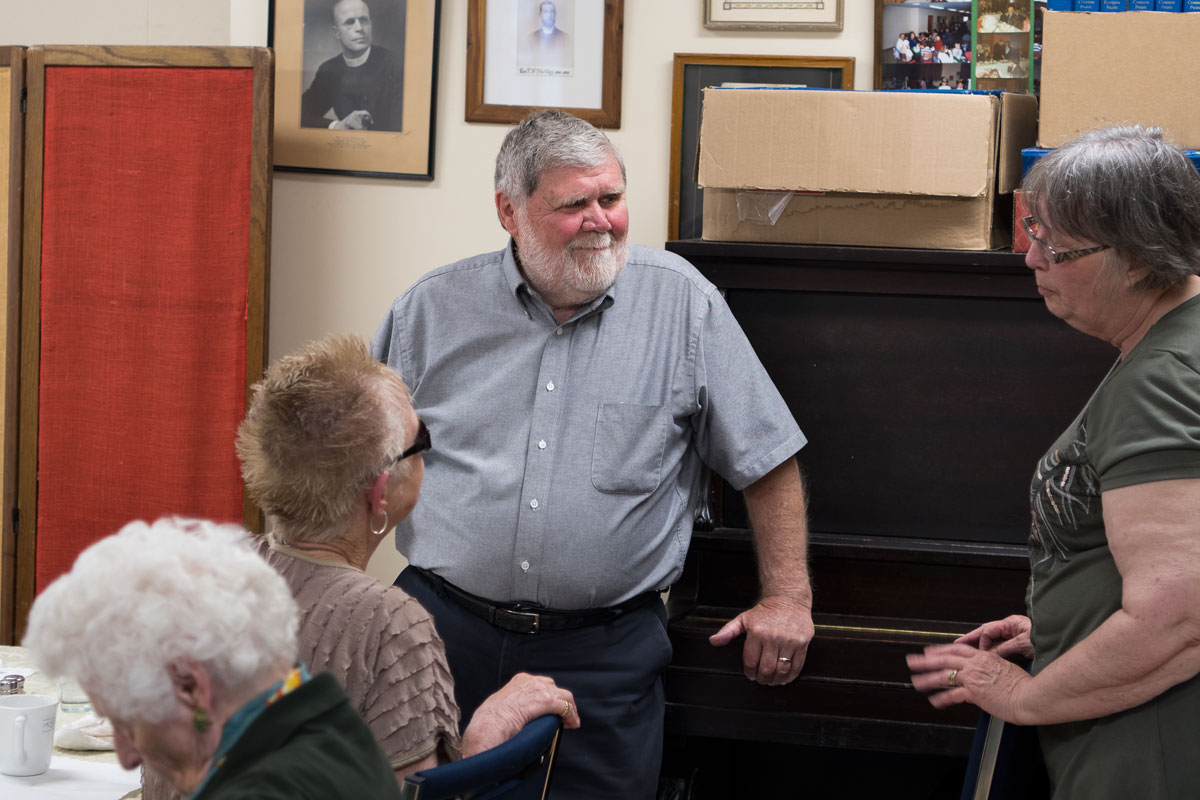The Evangelism Spectrum – Where are you?
The Evangelism Spectrum – Where are You?
The Institute of Evangelism - by Judy Paulsen
Judy and Pat often gather with the People of St Matthew - St Aidan for worship during the times they are in the Buckhorn area. This is a great article by Judy. Article used with permission.
It is true that people’s attitudes inevitably shape the culture of a church. This is especially true about people’s attitudes toward evangelism. How Christians feel about evangelism will inevitably shape their understanding of the mission of the Church. It will affect how their church spends money and time. It will affect the events they hold, the programs they run and the resources they buy. It will affect what they talk about and how they use their building. It will affect the relationships they build in their neighbourhood. Churches in which evangelism and disciple-making are central will structure and conduct themselves very differently than churches focused elsewhere.

Churches are typically made up of people with a variety of attitudes toward sharing their faith.
Often these attitudes have been formed by unexamined assumptions, images and experiences. And many of these are not positive. When they hear the word ‘evangelism’ many people first think of discredited televangelists, strangers handing out tracts, street preachers, or the ring of a doorbell interrupting their dinner.
How can we cultivate churches full of people with a healthier view of evangelism?
Wouldn’t it be amazing if all the people that are a part of your church felt quietly confident about sharing their faith with their unchurched or de-churched friends, family, colleagues and neighbours? How can we help Christians embrace their apostolic calling? These are great questions for leaders of churches across North America to consider.
I’d like to suggest that to grapple with these questions churches must take a ruthless inventory of their attitude toward sharing their faith. Is it terrifying? Is it simply a nice concept? Is it an important value (among a number of values)? Or is it at the core of who they are?
Begin with truth-telling
Honesty about present attitudes towards evangelism is the first step towards growing your ability to share the faith, both individually and as a community. Below is a numerical spectrum. What percentage of the members of your church do you think would define themselves in the following ways?
Where do you find yourself on this spectrum?
- “I want to believe in God but I’m not sure exactly what that looks like or entails.”
- “I was taught that faith in God is a private matter. I don’t talk about my beliefs to anyone else.”
- “I believe talking about faith is primarily the pastor/priest/preacher’s job.”
- “I know the church is supposed to share the faith but I’m just not an evangelist!”
- “I know we’re all supposed to share our faith but I don’t feel I know the basics well enough to do that.”
- “I’d like to be able to share my faith but I don’t know how to do that without offending people.”
- “I’m beginning to feel comfortable talking about my faith with others in my church.”
- “I feel confident sharing the story of my faith journey with people who ask about it.”
- “I’m excited to share with people in my life about what my faith means to me.”
- “I’ve now had the experience of sharing my faith with someone in my life.”
- “I love building relationships with my non-Christian friends, neighbours and colleagues, and am finding they are often curious to hear about why I am a person of Christian faith.”
- “God seems to be opening up more and more opportunities for me to share about the Christian faith with others, who often respond with curiosity and then take steps towards faith themselves.”
Why not invite your whole congregation into a conversation about their attitude toward evangelism?
